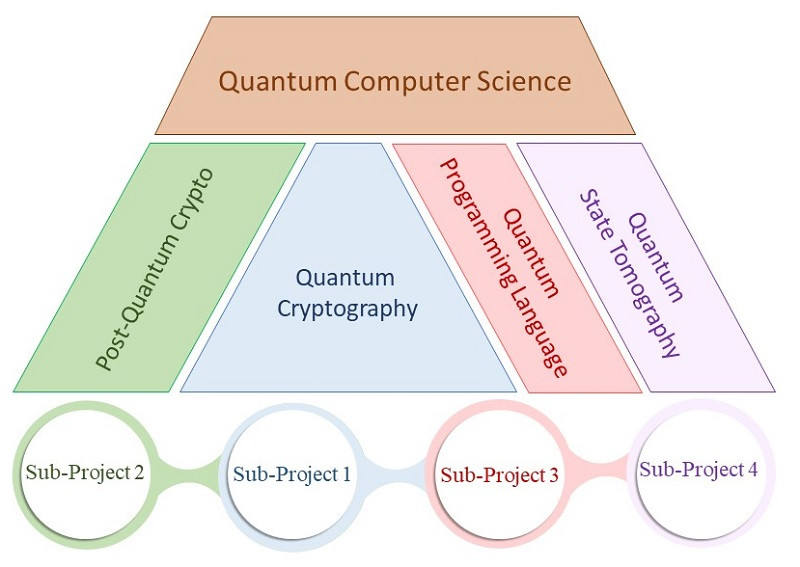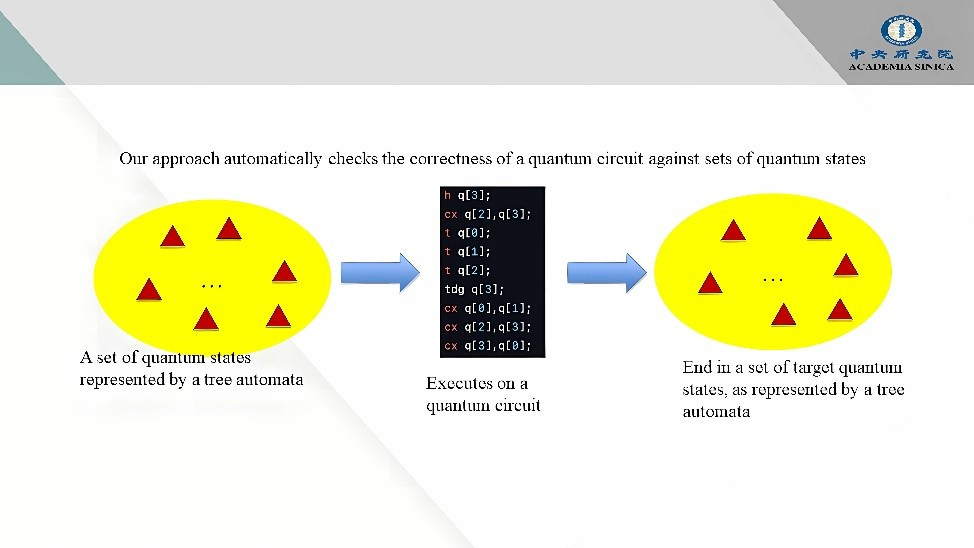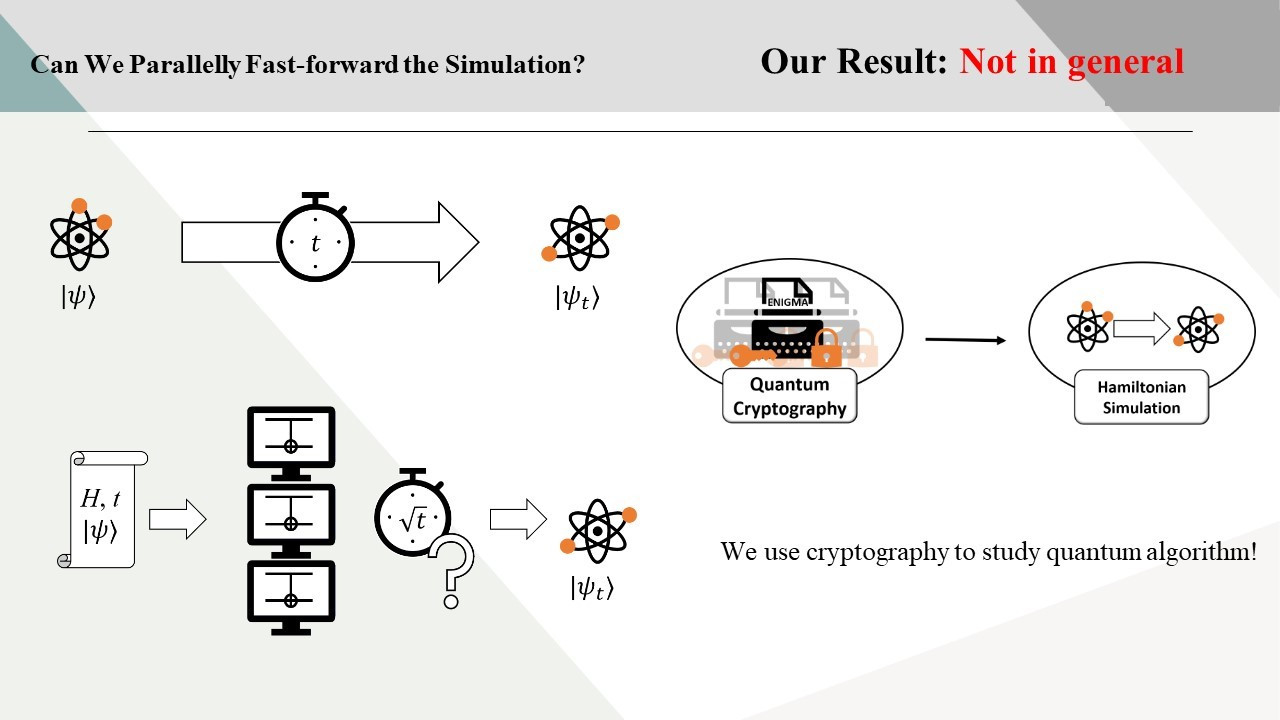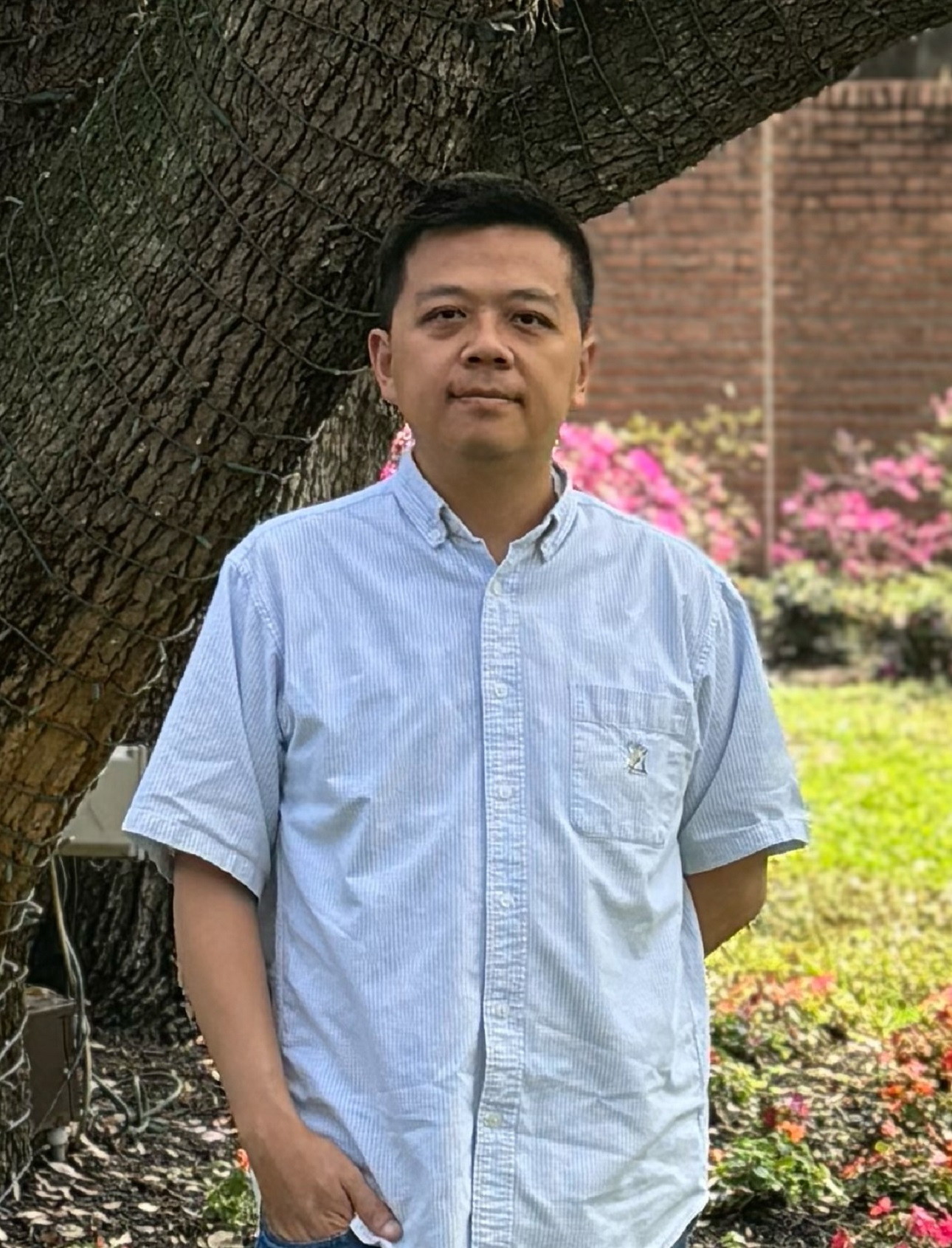第一列
This is a theoretical project that brings together quantum experts in Taiwan with different expertise in computer science to broadly investigate the theory of quantum computer science based on our expertise. We will focus on the following research fields: Quantum Cryptography, Post-quantum Cryptography, Quantum Programming Language, and Quantum State Tomography.
The PIs have long-term collaborations on proposed research topics. We believe that working as a team on this project will deepen our collaboration and greatly facilitate our goal of making a fundamental impact on the theory of these interdisciplinary fields. Besides research contributions, another major goal of this proposal is to cultivate next-generation researchers in quantum computer science.

This project focuses on theoretical developments of four important fields in quantum computer science based on the PIs’ expertise. While the fields are different, they are inter-connected and the PIs have long-term collaborations on these fields.
-
Co-PI
-
Bo-Yin Yang (Academia Sinica)
-
Yu-Fang Chen (Academia Sinica)
-
Han-Hsuan Lin (National Tsing-Hua University)
An Automata-based Framework for Verification and Bug Hunting in Quantum Circuits
This technique aims to detect errors in quantum circuits by analyzing the relationship between input and output sets of quantum states. By utilizing tree automata to compactly represent quantum state sets and avoiding the inaccuracies of floating-point calculations, this approach significantly improves the accuracy and efficiency of quantum circuit verification. Connecting quantum program verification with automata theory, it opens new possibilities for using automata theory in the future development of quantum computing verification and bug detection.

Our approach automatically verifies the correctness of a quantum circuit against sets of quantum states, represented by tree automata, ending in target quantum states.
Reference: Yu-Fang Chen, Kai-Min Chung, Ondřej Lengál, Jyun-Ao Lin, Wei-Lun Tsai, Di-De Yen, "An Automata-based Framework for Verification and Bug Hunting in Quantum Circuits," The 44th ACM SIGPLAN Conference on Programming Language Design and Implementation (PLDI 2023), June 2023. https://doi.org/10.48550/arXiv.2301.07747
On the Impossibility of General Parallel Fast-forwarding of Hamiltonian Simulation
This study addresses whether parallel computing can achieve fast-forwarding in Hamiltonian simulation, focusing on time-independent and sparse Hamiltonian quantum systems. We demonstrate that in various settings, Hamiltonian simulation cannot be fast-forwarded using low-depth circuits, revealing the limitations of parallel computing in this context. These findings highlight fundamental constraints that must be considered in the design of efficient quantum algorithms, offering critical insights for future quantum computing research and applications.

This figure shows the concept that physical systems cannot achieve Hamiltonian simulation fast-forwarding through parallel computation.
Reference: Nai-Hui Chia, Kai-Min Chung, Yao-Ching Hsieh, Han-Hsuan Lin, Yao-Ting Lin, Yu-Ching Shen, "On the Impossibility of General Parallel Fast-forwarding of Hamiltonian Simulation," The 38nd Annual IEEE Conference on Computational Complexity (CCC 2023), July 2023. https://doi.org/10.4230/LIPIcs.CCC.2023.33
